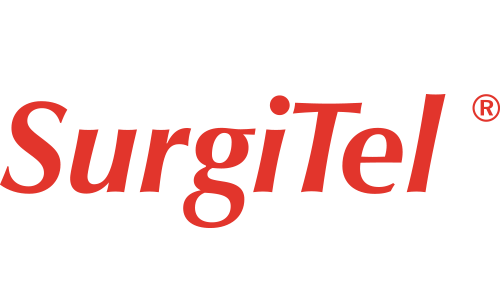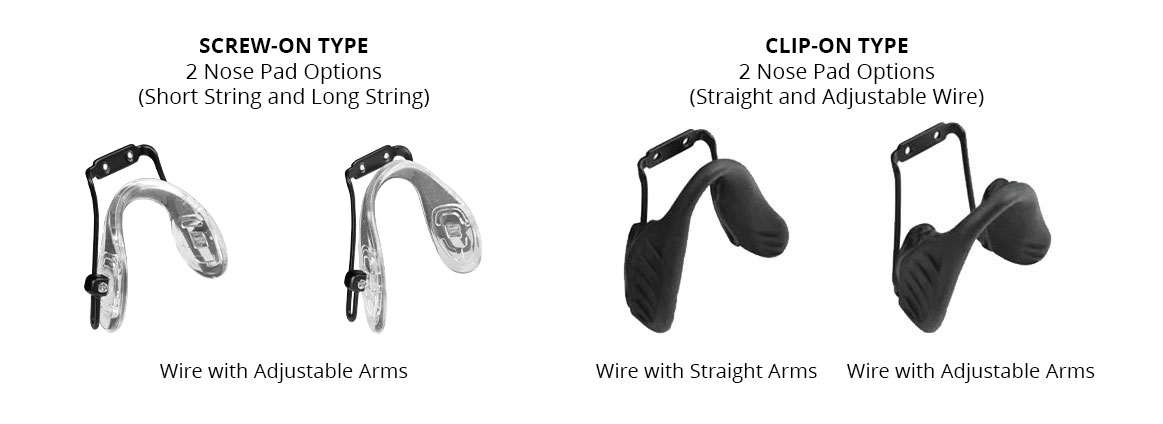Why SurgiTel Should Be Your Ergonomic Loupe Provider

ErgoPractice News – August 2023
By Jin Chang PhD
jchang@surgitel.com
Summary
SurgiTel’s unwavering mission revolves around improving the way medical, dental, and veterinary professionals work. Our dedicated pursuit is to enhance our clients’ health by offering unparalleled products that endorse optimal working postures and comfort. By alleviating the all-too-common issues of neck and back strains, we help clinicians to deliver top-tier care to their patients. While many loupe providers claim to have ergonomic solutions, not all of them meet the requirement of a less than 20-degree head tilt. To achieve truly ergonomic loupes tailored to the unique needs of every clinician, we offer three ergonomic loupe types: Front-Lens-Mounted (FLM) – can also be mounted on a Headband, Through-The-Lens (TTL), and ErgoDeflection. To know if you and your practice are truly ergonomic, take advantage of our Free Evaluation Service. This month’s ErgoPractice News will review why SurgiTel is the ideal choice as your ergonomic loupe provider.
Tailored Precision with SurgiTel Loupes
In the realm of precision and meticulousness, where even the smallest details hold significance, clinicians insist on nothing less than perfection. Just as a skilled tailor crafts a bespoke suit to match an individual’s exact measurements, SurgiTel loupes have always been founded upon the principle of 100% tailored ergonomic designs. The loupes are meticulously customized to cater to each individual’s requirements, guaranteeing a level of optical superiority that accepts no compromise. The capacity of SurgiTel to provide genuinely personalized loupes is largely attributed to our extensive list of patents.
Over three decades, SurgiTel has accumulated numerous patents, pioneering essential technologies to produce a comprehensive range of posture-friendly loupes, ranging from 2.5x to 10.0x magnification, enabling clinicians to work comfortably with a head tilt of less than 20-degrees, and companion, eye-safe headlights for various clinical procedures.
Suspended TTL Loupes
SurgiTel has patented the technology of suspended mounting of TTL oculars, which secures the magnification oculars at the lowest point of a sweeping or open lens structure (Figure 1). This, combined with the pantoscopic tilt of our lenses, allows us to achieve a more pronounced declination angle than any competitor.
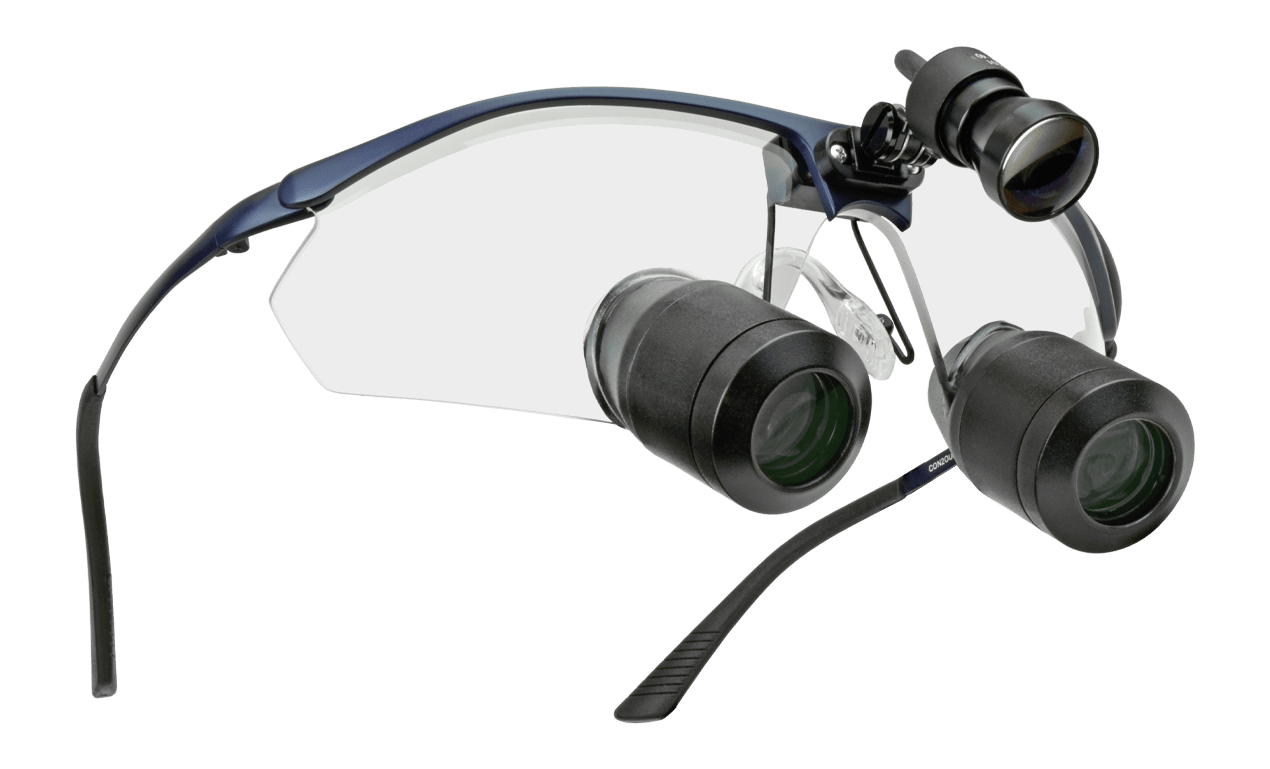
Figure 1: Example of SurgiTel’s patented suspended magnification technology. Note how the bottom of the oculars are not in the lens.
Prism Loupes
In the past, achieving higher magnification presented challenges due to excessive weight, making loupes uncomfortable to wear. Traditional prism designs were burdened by their heaviness and consequently lacked popularity. Around 25 years ago, SurgiTel revolutionized the field by introducing our initial generation of lightweight, lower-power loupes. Following this breakthrough, clinicians approached SurgiTel with the challenge of reducing prism loupe weight. After dedicated research and development, we successfully achieved a significant reduction in prism weight through our proprietary patented technology.
ErgoDeflection™ Prism
SurgiTel’s patent pending ErgoDeflection loupe boasts a uniquely engineered deflection design to provide an optimal viewing angle, promoting an ideal neck posture and reach distance. In contrast to existing deflection loupes with fixed viewing angles of 45- or 48-degrees, the patent pending ErgoDeflection loupe from SurgiTel offers the flexibility to customize the viewing angle within a range of 40- to-55 degrees, allowing clinicians to precisely align the viewing angle to their unique requirements.
Ergo Fit Nose Pads and Frames
Utilizing Ergo Fit Nose Pad options, SurgiTel offers genuinely ergonomic loupes for clinicians of all types, accommodating various nasal contours (Figure 2). The inclusion of Ergo Fit Nose Pads facilitates the optimization of the distance between the eyes and the loupe optics, preventing fogging, minimizing instances of eyelash-lens interaction, and facilitating the incorporation of prescription lenses. The integral significance of Ergo Fit Nose Pads lies in their pivotal role in ensuring the comfortable fit of loupes, achieved by uniformly distributing the weight of the loupes across the entirety of the nasal surface.
Conventional frame designs were not originally conceived for loupes. Many companies still utilize traditional-style frames and nose pads, prioritizing aesthetics and colors. SurgiTel’s pioneered patented Ergo frames, and our wide range of which allow TTL loupes to adopt a generous declination angle, and FLM loupes to benefit from a wide field of view. SurgiTel’s patented ergonomic frames’ unique pantoscopic tilt allows FLM loupes to have a larger field of view and TTL loupes to have larger declination angles. These frames are designed and manufactured to serve as a platform for loupes. We partnered with Oakley as their frames have a similar pantoscopic tilt, provide users with good eye protection and have their patented three-point fit. We special order lenses for even more customization options and to offer the best fit possible to clinicians.
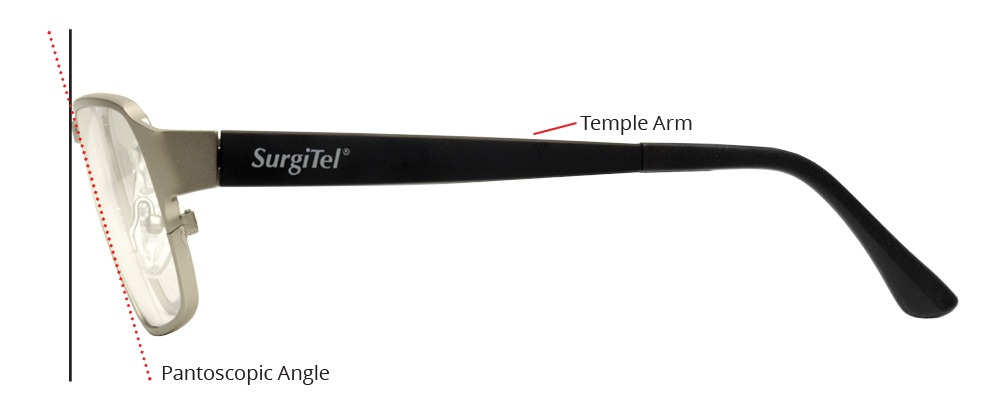
Figure 3: Pantoscopic tilt (patented)
Working Distance Caps
SurgiTel’s patented working distance caps allow users to extend or shorten the working distance of their loupes (Figure 4). Reducing the working distance means that users can increase the resolution capacity of their loupes. Users can utilize the same loupes for both detail exams with shorter working distance caps and for normal procedures with longer working distance caps, allowing for optimal posture in every situation. By using SurgiTel’s interchangeable working distance caps, users may change their working distance for different procedures or to compensate for the changes caused over time by presbyopia.
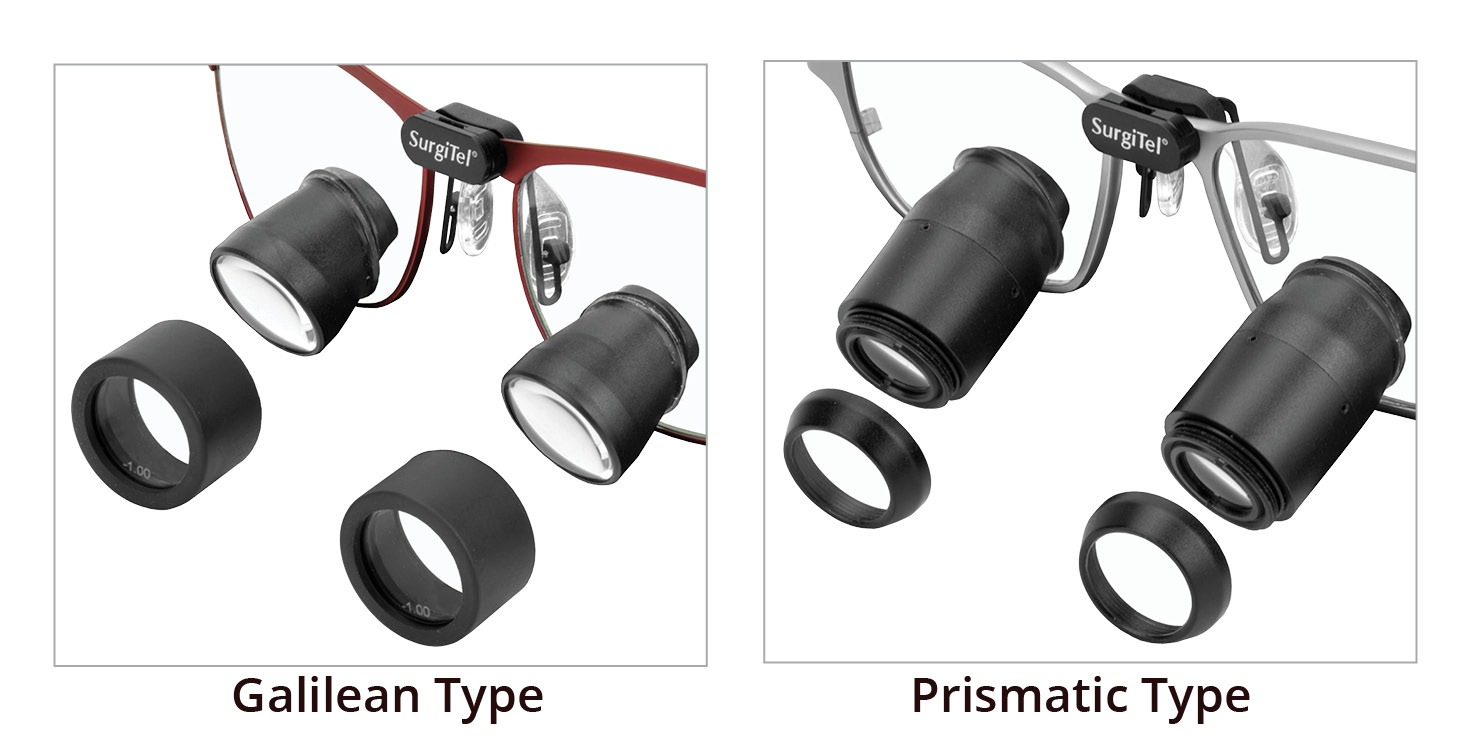
Figure 4: Working distance caps for Galilean and prismatic type loupes
False Declination Angle Claims
In the past few years, clinical ergonomics has garnered substantial attention and significance among dental, medical, and veterinary professionals. Notably, numerous loupe manufacturers have started marketing their products as ergonomic, even when such claims may not hold true. A common approach to achieving this is by asserting the presence of a substantial declination angle. However, despite these assertions, it remains puzzling why clinicians using loupes with supposedly “large declination angles” continue to suffer from persistent neck pain.
The declination angle serves as a metric for assessing how effectively loupes enable users to direct their gaze downward using their eyes rather than contorting their head and neck. Many loupe companies boast about having high declination angles, indicating that their products facilitate reduced head tilting for clear ocular viewing. Yet, the measurement of declination angles can be manipulated in various ways to present a greater angle than is actually present, allowing companies to select measurements that amplify the appearance of ergonomic design in their offerings.
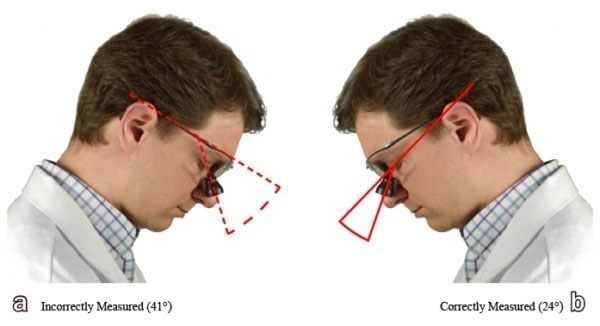
Figure 5: Measuring declination angle
For an accurate assessment of the declination angle, the user should wear the specific loupes under consideration. The reference line should be established as the line connecting the corner of the eye and the top of the ear (Figure 5b). In contrast, most loupe manufacturers use the temple arm as the reference line, which significantly inflates the apparent declination angle (Figure 5a). This tactic leads clinicians and students to believe they are obtaining loupes with notably extensive declination angles, only to discover that the actual ergonomics are lacking, exacerbating issues related to the neck and back.
The sole accurate gauge of ergonomic posture revolves around assessing head tilt. Loupes can only be truly ergonomic if they allow the user to maintain a head tilt of less than 20-degrees. When assessing loupes, it is imperative to prioritize the achievable posture rather than placing undue emphasis on the proclaimed declination angle.
Transparent 3rd Party Evaluations
When it comes to third-party lab testing, our competitors omit the lab’s name and the specific products it was tested against. This can raise concerns about the transparency of their testing procedures. It’s essential that when companies make assertions regarding the quality and benefits of their loupes and lights, that it is supported by well-documented research. Without such substantiation, clinicians may make investments in products that could potentially lead to discomfort and long-term injury.
In the absence of disclosed information about the evaluating organization, the verification of these claims becomes a complex task. Clinicians and students seeking to make informed decisions about selecting safe and effective loupes and lights for their practices are left in a state of uncertainty and confusion as there is no way to verify these claims.
SurgiTel provides the information of the third-party evaluators who did the testing, and when available, says where to find the study so clinicians are able to view it for themselves. For example, two of SurgiTel lights were recently included in a study by Richard B. Price, Daniel Labrie, Braden Sullivan, and David H. Sliney on blue light hazard. This study was included in the October 2022 printed version in Volume 125 as Article 104226 by Elsevier: Journal of Dentistry. The August 2022 ErgoPractice News discusses reviews the article, Click Here to read. Or to read the study “The Potential ‘Blue Light Hazard” from LED Headlamps,” Click Here.
Dental Product Shopper (DPS) conducts Peer-to-Peer assessments of a wide range of products, including those from SurgiTel. In a recent evaluation, the ErgoDeflection loupe was awarded the title of ‘Best Product,’ with an impressive score of 4.8 out of 5. If you’re interested in delving into the evaluation of the ErgoDeflection, you can access it by Clicking Here. DPS has also assessed numerous other SurgiTel products, and you can explore those articles by Clicking Here.
About SurgiTel
Over the past 30 years, SurgiTel loupe designs have greatly advanced to serve the demands of clinicians. SurgiTel is uniquely situated to provide higher magnification and greater flexibility than competitors. The traditionally-designed non-ergonomic loupes are lacking features offered by next-generation SurgiTel patented loupes which allow for a more comfortable weight along with a stable, quality vision. SurgiTel has local and international representatives to help clinicians get personalized support. With SurgiTel’s Tune Up program, we can help clinicians maintain their loupes and keep them in great condition (click here to learn more). To keep loupes working like new we recommend that clinicians should send their loupes in for a tune up at least once a year. By understanding and implementing this practice, clinicians can prolong the lifespan of their loupes, maximize their efficiency, and ultimately achieve substantial savings in the long run.
